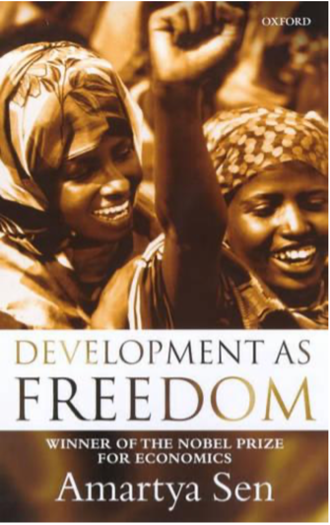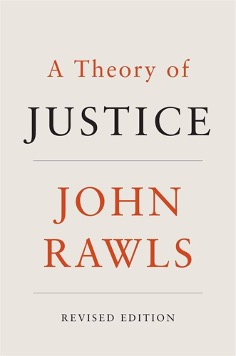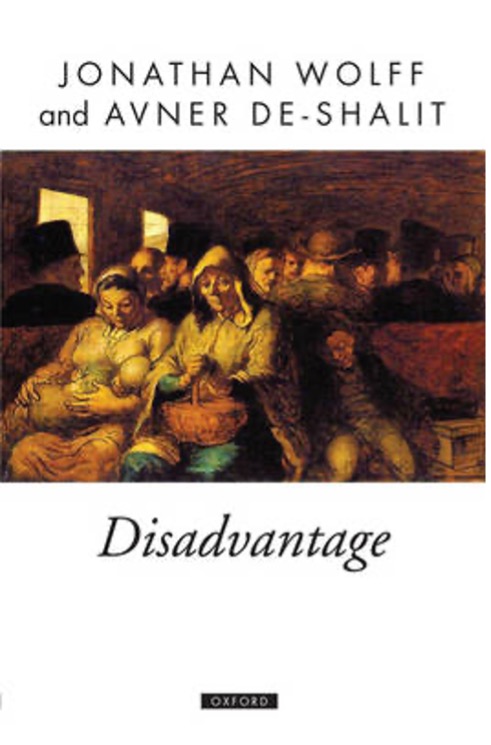4 Recommended Reads for World Day of Social Justice
In celebration of World Day of Social Justice, BSG’s Alfred Landecker Professor of Values and Public Policy, Jonathan Wolff recommends four central texts on social justice.
Estimated reading time:
In celebration of World Day of Social Justice, BSG’s Alfred Landecker Professor of Values and Public Policy, Jonathan Wolff recommends four central texts on social justice.
Estimated reading time:
20 February 2024

Amartya Sen, Development as Freedom (Penguin, 1999)
In Development as Freedom, Sen emphasises the centrality of freedom in fostering individual agency and societal progress. Published in 1999, Sen's seminal work critiques traditional economic frameworks that prioritise GDP growth over social welfare, arguing instead for a holistic approach that prioritises political, economic, and social freedoms. Through his "capability approach," Sen advocates for investments in education, healthcare, and social security to enhance individuals' capabilities and expand their choices, advocating for a more equitable and just society.

Martha Nussbaum, Women and Human Development (CUP, 2000)
In "Women and Human Development," Martha Nussbaum presents a vision of what it means to be human and emphasizes the vital role of the state in fostering human capabilities and dignity. Nussbaum argues that being fully human entails more than mere rationality or happiness; it involves the possession of fundamental capabilities, including the ability to love, think critically, engage in dignified labour, and participate in society's cultural life. She contends that constitutional governments have a moral obligation to protect and promote these capabilities, ensuring that citizens have access to essential resources such as education, healthcare, and dignified work. Nussbaum's "capabilities approach" envisions a society where individuals can flourish as functioning citizens, free from fear and able to pursue a life of dignity and fulfilment. By emphasizing the positive obligations of the state to nurture human capabilities, Nussbaum offers a perspective on social justice and human development
.
Iris Marion Young, Responsibility for Justice (OUP, 2011)
In "Responsibility for Justice," Iris Marion Young provides an analysis of structural injustice and proposes a theory of responsibility aimed at addressing it. Young criticizes discourses about poverty that overly emphasize personal shortcomings while neglecting the systemic barriers that limit opportunities for the impoverished. She argues against both conservative and liberal approaches that fail to account for the role of social structures in perpetuating injustice. She introduces a "social connection model of responsibility," inspired by Hannah Arendt, which distinguishes responsibility from guilt and emphasizes forward-looking efforts to reshape social practices. Young contends that while individuals may not be blameworthy for contributing to structural injustices, they bear a responsibility to rectify these systemic issues. By shifting the focus from individual culpability to collective action, Young's theory offers a transformative framework for addressing and combating structural injustice in society

Iris Marion Young, Responsibility for Justice (OUP, 2011)
In "Responsibility for Justice," Iris Marion Young provides an analysis of structural injustice and proposes a theory of responsibility aimed at addressing it. Young criticizes discourses about poverty that overly emphasize personal shortcomings while neglecting the systemic barriers that limit opportunities for the impoverished. She argues against both conservative and liberal approaches that fail to account for the role of social structures in perpetuating injustice. She introduces a "social connection model of responsibility," inspired by Hannah Arendt, which distinguishes responsibility from guilt and emphasizes forward-looking efforts to reshape social practices. Young contends that while individuals may not be blameworthy for contributing to structural injustices, they bear a responsibility to rectify these systemic issues. By shifting the focus from individual culpability to collective action, Young's theory offers a transformative framework for addressing and combating structural injustice in society
.
John Rawls, A Theory of Justice (OUP, revised edition, 1999)
In "A Theory of Justice", a seminal work in political philosophy, Rawls presents a comprehensive framework for understanding justice in society. Rawls critiques existing theories that prioritize individual rights or utility maximization, proposing instead a conception of justice based on principles of fairness and equality. He introduces the concept of the "original position" where individuals, behind a "veil of ignorance," would choose principles of justice without knowledge of their own social position. From this perspective, Rawls argues for two principles of justice: the principle of equal basic liberties and the difference principle, which allows for social and economic inequalities only if they benefit the least advantaged members of society. Rawls' theory aims to create a just society that prioritizes the well-being of the most vulnerable while maintaining individual freedom and autonomy.
And if you want to find out more about Professor Jo Wolff’s own ideas on social justice…
Jonathan Wolff and Avner de Shalit, Disadvantage (OUP, 2007)
"Disadvantage" by Jonathan Wolff and Avner de-Shalit offers insights into social justice by examining inequality and proposing practical solutions to address disadvantage. Through a blend of philosophy and empirical research, the book highlights the need for community engagement and policy interventions to tackle systemic barriers to equality of opportunity.

John Rawls, A Theory of Justice (OUP, revised edition, 1999)
In "A Theory of Justice", a seminal work in political philosophy, Rawls presents a comprehensive framework for understanding justice in society. Rawls critiques existing theories that prioritize individual rights or utility maximization, proposing instead a conception of justice based on principles of fairness and equality. He introduces the concept of the "original position" where individuals, behind a "veil of ignorance," would choose principles of justice without knowledge of their own social position. From this perspective, Rawls argues for two principles of justice: the principle of equal basic liberties and the difference principle, which allows for social and economic inequalities only if they benefit the least advantaged members of society. Rawls' theory aims to create a just society that prioritizes the well-being of the most vulnerable while maintaining individual freedom and autonomy.
And if you want to find out more about Professor Jo Wolff’s own ideas on social justice…

Jonathan Wolff and Avner de Shalit, Disadvantage (OUP, 2007)
"Disadvantage" by Jonathan Wolff and Avner de-Shalit offers insights into social justice by examining inequality and proposing practical solutions to address disadvantage. Through a blend of philosophy and empirical research, the book highlights the need for community engagement and policy interventions to tackle systemic barriers to equality of opportunity.

No comments:
Post a Comment